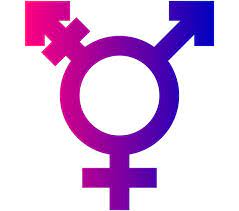The topic of gender identity and expression continues to evolve, challenging traditional norms and fostering discussions that are crucial for understanding the complexities of human experience. Among these discussions, the question "Are transgender men real men?" often arises, stirring both curiosity and controversy. To explore this topic, we will delve into various aspects of gender identity, particularly focusing on transgender men. In this article, we aim to shed light on what it means to be a trans man, clarify misconceptions, and emphasize the importance of acceptance and support in society.
Understanding Gender Identity: What Does It Mean?
Gender identity refers to an individual’s internal sense of their own gender, which may differ from the sex assigned to them at birth. While many people identify with the gender that corresponds to their biological sex, others, such as transgender individuals, may not. Understanding gender identity is crucial because it encompasses a broad spectrum of experiences and expressions, reflecting the diversity of human lives. Long Term Effects Of Transgender Hormone Therapy
For many, gender identity is not strictly binary; instead, it can be fluid and multifaceted. This understanding encourages a broader perspective on gender, allowing individuals to express themselves authentically. Recognizing and respecting people’s gender identity is fundamental for fostering inclusivity and understanding in society.
The Basics of Transgender: Defining Trans Men
Transgender men, or trans men, are individuals who were assigned female at birth but identify and live as men. Transitioning can involve various steps, including social changes (like adopting a new name and pronouns), medical procedures (like hormone therapy or surgery), and legal adjustments (like changing gender markers on identification documents). Each trans man’s journey is unique, reflecting personal choices and circumstances.
It’s essential to recognize that being a trans man is about identity rather than biological determinism. A trans man may or may not choose to undergo medical transitions, but their identity as a man is valid regardless of these choices. Acknowledging this helps foster a deeper understanding of what it means to be a man beyond mere biological traits.
Common Misconceptions About Transgender Men Explained
One of the most prevalent misconceptions is that trans men are not "real" men, primarily due to their assigned female sex at birth. This notion undermines the validity of their gender identity, leading to exclusion and stigma. Many people mistakenly equate masculinity strictly with biology, ignoring the lived experiences and identities of transgender individuals.
Another misconception is that all trans men must undergo surgery or hormone therapy to be considered "real" men. In reality, transitioning is a highly personal process, and each individual defines their journey on their terms. These misconceptions can perpetuate harmful stereotypes and contribute to the marginalization of trans men, emphasizing the need for education and awareness.
The Science Behind Gender Identity: Nature vs. Nurture
The debate surrounding the origins of gender identity often centers on the nature versus nurture question. Research indicates that gender identity likely arises from a combination of biological, genetic, and environmental factors. Some studies suggest that brain structures in transgender individuals may resemble those of their identified gender, highlighting the potential biological aspects of gender identity.
However, it’s crucial to recognize that the experience of being transgender is not solely dictated by biology. Environmental factors—such as cultural influences, family dynamics, and personal experiences—play significant roles in shaping one’s gender identity. Ultimately, both nature and nurture contribute to the complex tapestry of gender identity, emphasizing the need for acceptance of diverse experiences.
How Society Views Trans Men: Progress and Challenges
Over the years, societal views on transgender individuals, including trans men, have evolved, with increasing visibility and representation in various media. More people are beginning to recognize the validity of transgender identities, leading to greater acceptance and inclusion in many communities. However, challenges remain, with trans men often facing discrimination, violence, and stigma.
Despite progress, many trans men report feeling marginalized or misunderstood in various settings, including healthcare, workplaces, and social interactions. Navigating these challenges can be daunting, but increased awareness and advocacy efforts are essential to fostering a more inclusive society that respects and uplifts trans identities.
Personal Stories: Real Trans Men Share Their Journeys
Personal narratives of trans men can help illuminate the diverse experiences within the trans community. For some, their journey begins in childhood, grappling with feelings of disconnection from their assigned gender. Others may come to understand their identity later in life, leading to transformative experiences that redefine their self-concept and relationships. Each story is a testament to resilience and authenticity.
These personal accounts not only highlight the challenges faced by trans men but also celebrate their triumphs and contributions to society. By sharing their experiences, trans men can inspire others, fostering understanding and empathy among those who may not be familiar with transgender issues.
The Importance of Acceptance: Why It Matters
Acceptance plays a crucial role in the well-being of trans men. When society embraces and acknowledges their gender identity, it can significantly enhance their mental and emotional health. Acceptance can manifest in various ways, from using correct names and pronouns to advocating for inclusive policies and practices in workplaces and schools.
Conversely, rejection and stigma can lead to serious consequences, including mental health struggles, social isolation, and a higher risk of self-harm. By promoting acceptance, we can create a more supportive environment that empowers trans men to live authentically and thrive in their personal and professional lives.
Moving Forward: How to Support Trans Men in Society
Supporting trans men requires both individual and collective efforts. On a personal level, it’s important to educate ourselves about transgender issues and practice empathy and understanding. Simple actions like using correct pronouns, listening to their experiences, and standing against transphobia can make a significant difference.
On a societal level, advocacy for policies that protect transgender rights is essential. This includes pushing for inclusive healthcare, anti-discrimination laws, and educational reforms that promote understanding and acceptance of trans identities. By working together, we can create a world where trans men are recognized not just as valid members of society but as individuals who contribute richly to the diverse human experience.
The question of whether transgender men are "real" men serves as a gateway to deeper conversations about gender identity and societal acceptance. As we continue to explore the complexities of gender, it’s vital to acknowledge and validate the experiences of trans men. Through understanding, empathy, and advocacy, we can foster a more inclusive society that celebrates the diversity of all identities. Every individual’s journey is unique, and by supporting one another, we can create a world where everyone has the opportunity to live their truth unapologetically.


